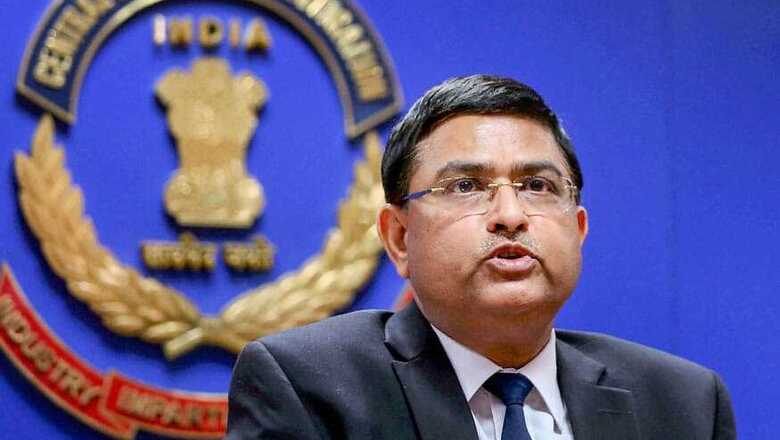Section Cited by Rakesh Asthana to Challenge Arrest Only Applies to 'Honest' Officers, Says Delhi HC

views
New Delhi: The Delhi High Court on Friday dismissed special CBI director Rakesh Asthana’s plea to quash an FIR against him and ruled that he will no longer enjoy interim protection from arrest.
Asthana’s primary contention, on the basis of Section 17A of Prevention of Corruption Act, was that the permission of the government was needed before filing an FIR against a public servant.
However, Justice Najmi Waziri ruled that Section 17A "can only be read to protect officers who have an unbiased attitude in treating cases" and who do not have the fear of cases being probed against them.
In an important legal note which sets a precedent, Justice Waziri noted that in the cases of prima facie criminal allegations against a public servant, "prior permission of the government will not be needed”.
The High Court also noted that it was aware that Asthana was heading a Special Investigation Team and that such a case would cause "embarrassment" to an officer, but added that here the case was not about an individual but the probe. The judge noted that the case needed to be carried out "expeditiously".
Asthana was booked on charges of criminal conspiracy, corruption and criminal misconduct under sections of Prevention of Corruption Act. Hyderabad-based businessman Sathish Babu Sana, on whose complaint the FIR was lodged, had alleged having paid bribe to get relief in a case.
Sana had also made allegations of corruption, extortion, high-handedness and serious malpractice against Asthana.
Justice Waziri had reserved the judgment on December 20 on various petitions after hearing submissions of the counsel for CBI, the Centre, Asthana, Kumar, Verma and Joint Director AK Sharma.
Kumar, arrested on October 22, was granted bail on October 31.
Kumar, earlier the investigating officer in a case involving meat exporter Moin Qureshi, was arrested on the allegations of forgery in recording the statement of Sana who had alleged having paid bribe to get relief in the case.
Prasad was arrested on October 17 and granted bail on December 18 as the CBI could not file the charge sheet against in the case in the mandatory 60 days.
Verma had in an affidavit said that there were sufficient incriminating documents and evidence against all the accused -- Asthana, Kumar and Prasad -- with the CBI, and the FIR had been lodged after the Preliminary Enquiry disclosed cognisable offences.
He had claimed that Asthana's plea is misconceived, premature and not maintainable as investigation in the matter is at a nascent stage.
The top court had on January 8 reinstated Verma but directed him not to take any major policy decision. Verma had challenged before the apex court the Centre's decision to divest him of all powers and sending him on leave following his feud with Asthana.
The apex court had held that the proper procedure was not followed by the Centre in divesting Verma of his power and sending him on leave along with Asthana as both of them had traded charges of corruption against each other.
The top court had asked the high-powered committee which selects the CBI Director to examine the charges against Verma on the basis of the CVC report within a week.
Verma, who was to retire on January 31, was on Thursday removed from the post of CBI Director in a split decision of 2:1 by a high-powered committee comprising Prime Minister Narendra Modi, Congress leader Mallikarjun Kharge and Justice AK Sikri.


















Comments
0 comment